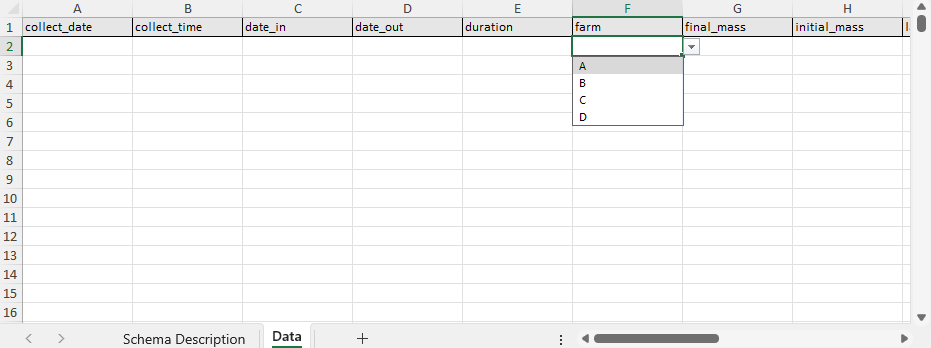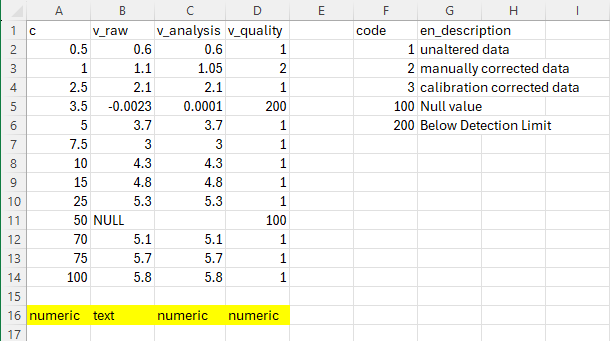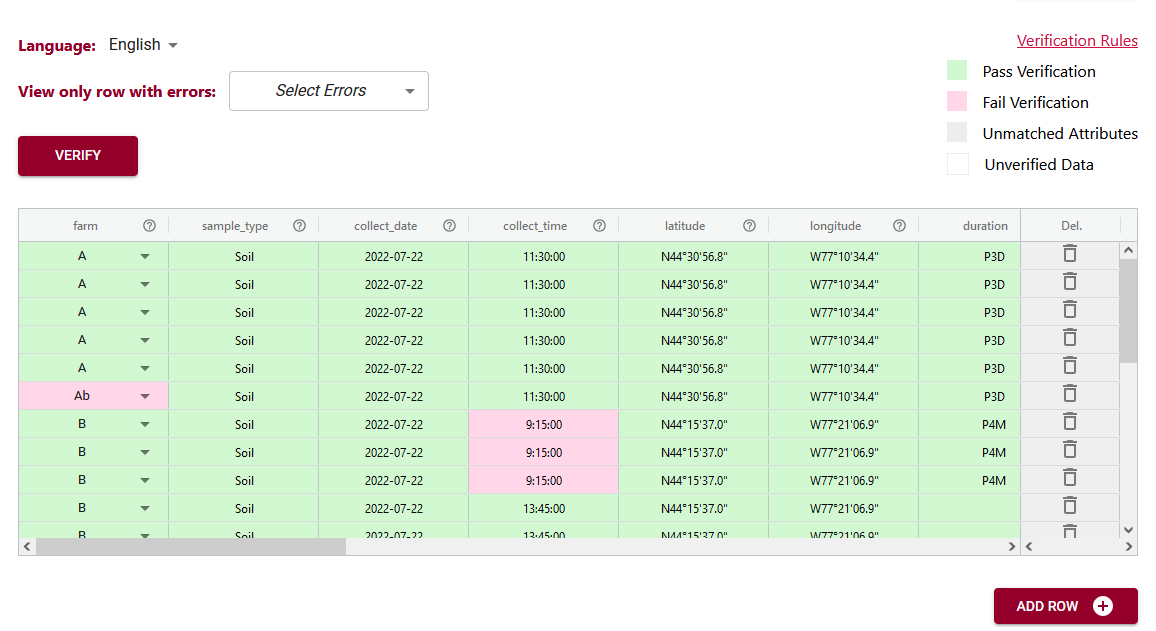Funding for Agri-food Data Canada is provided in part by the Canada First Research Excellence Fund
Searching for variables within Data Schemas
My last post was all about where to store your data schemas and how to search for them. Now let’s take it to the next step – how do I search for what’s INSIDE a data schema – in other words how do I search for the variables or attributes that someone has described in…
ViewUnderstanding the format overlay
With the introduction of using OCA schemas for data verification let’s dig a bit more into the format overlay which is an important piece for data verification. When you are writing a data schema using the Semantic Engine you can build up your schema documentation by adding features. One of the features that you can…
ViewUsing the Data Entry Excel tool
When data entry into an Excel spreadsheet is not standardized, it can lead to inconsistencies in formats, units, and terminology, making it difficult to interpret and integrate research data. For instance, dates entered in various formats, inconsistent use of abbreviations, or missing values can give problems during analysis leading leading to errors. Organizing data according…
ViewSearching for ADC Data Schemas
Alrighty – so you have been learning about the Semantic Engine and how important documentation is when it comes to research data – ok, ok, yes documentation is important to any and all data, but we’ll stay in our lanes here and keep our conversation to research data. We’ve talked about Research Data Management and…
ViewData Quality Annotations
What do you do when you’ve collected data but you need to also include notes in the data. Do you mix the data together with the notes? Here we build on our previous blog post describing data quality comments with worked examples. An example of quality comments embedded into numeric data is if you include…
ViewHow to use ISO duration
How to Use ISO 8601 Duration Format The ISO 8601 duration format allows you to represent durations of time in a standardized way. For example, if your data records contain a mixture of duration (e.g. 3 days, 4 months, 1 year etc.) you can represent all of these values using the ISO standard duration. Read…
ViewFeature release! Data Verification
There is a new feature just released in the Semantic Engine! Now, after you have written your schema you can use this schema to enter and verify data using your web browser. Find the link to the new tool in the Quick Link lists, after you have uploaded a schema. Watch our video tutorial on…
ViewSchemas for Publications
When submitting a publication to a journal you are often asked to submit data, publish it in a repository, or otherwise make it available. The journals may ask that your data supports FAIR principles (that data is Findable, Accessible, Interoperable and Reusable). You may be asked to submit supplementary data to a generalist or specialist…
ViewADC’s Re-usable Data Explorer App
Let’s take a little jaunt back to my FAIR posts. Remember that first one? R is for Reusable? Now, it’s one thing to talk about data re-usability, but it’s an entirely different thing to put this into action. Well, here at Agri-food Data Canada or ADC we like to put things into action, or think…
ViewUnderstanding a schema text file
When you create a schema using the Semantic Engine you are documenting information that can make your dataset more FAIR, helping others use and understand your data. The schema created using the Semantic Engine is understood by machines and is written in JSON. At first glance, it is not so easy for people to read…
View











